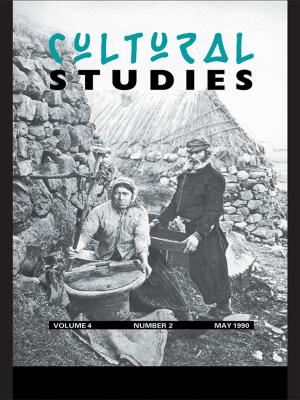Strange Cases
The Medical Case History and the British Novel
Fiction & Literature, Literary Theory & Criticism, British| Author: | Jason Tougaw | ISBN: | 9781135510916 |
| Publisher: | Taylor and Francis | Publication: | May 26, 2006 |
| Imprint: | Routledge | Language: | English |
| Author: | Jason Tougaw |
| ISBN: | 9781135510916 |
| Publisher: | Taylor and Francis |
| Publication: | May 26, 2006 |
| Imprint: | Routledge |
| Language: | English |
Strange Cases is the story of the mutual influence of the case history
and the British novel during the eighteenth and nineteenth centuries.
Fictions from Defoe's Roxana to James's The Turn of the Screw and
case histories from George Cheyne's to Sigmund Freud's have found
narrative impetus in pathology. The writer of a case history faces a
rhetorical bind unique to the human sciences: the need to display the
acumen of a scientist and the sympathy warranted to the suffering
patient. Repeatedly, case historians justify their publicizing of
extreme, often morbid or perverse, states of mind and body by
appealing to readers to take pity on patients and to recognize the
narrative as a vital social document. Diagnosis and sympathy, explicit
rhetorical modes in case histories, operate implicitly in novels,
shaping reader-identification. While these two narrative forms set out
to fulfill an Enlightenment drive to classify and explain, they also
raise social and epistemological questions that challenge some of the
Enlightenment's most cherished ideals, including faith in reason, the
perfectibility of humankind, and the stability of truth.
Strange Cases is the story of the mutual influence of the case history
and the British novel during the eighteenth and nineteenth centuries.
Fictions from Defoe's Roxana to James's The Turn of the Screw and
case histories from George Cheyne's to Sigmund Freud's have found
narrative impetus in pathology. The writer of a case history faces a
rhetorical bind unique to the human sciences: the need to display the
acumen of a scientist and the sympathy warranted to the suffering
patient. Repeatedly, case historians justify their publicizing of
extreme, often morbid or perverse, states of mind and body by
appealing to readers to take pity on patients and to recognize the
narrative as a vital social document. Diagnosis and sympathy, explicit
rhetorical modes in case histories, operate implicitly in novels,
shaping reader-identification. While these two narrative forms set out
to fulfill an Enlightenment drive to classify and explain, they also
raise social and epistemological questions that challenge some of the
Enlightenment's most cherished ideals, including faith in reason, the
perfectibility of humankind, and the stability of truth.















